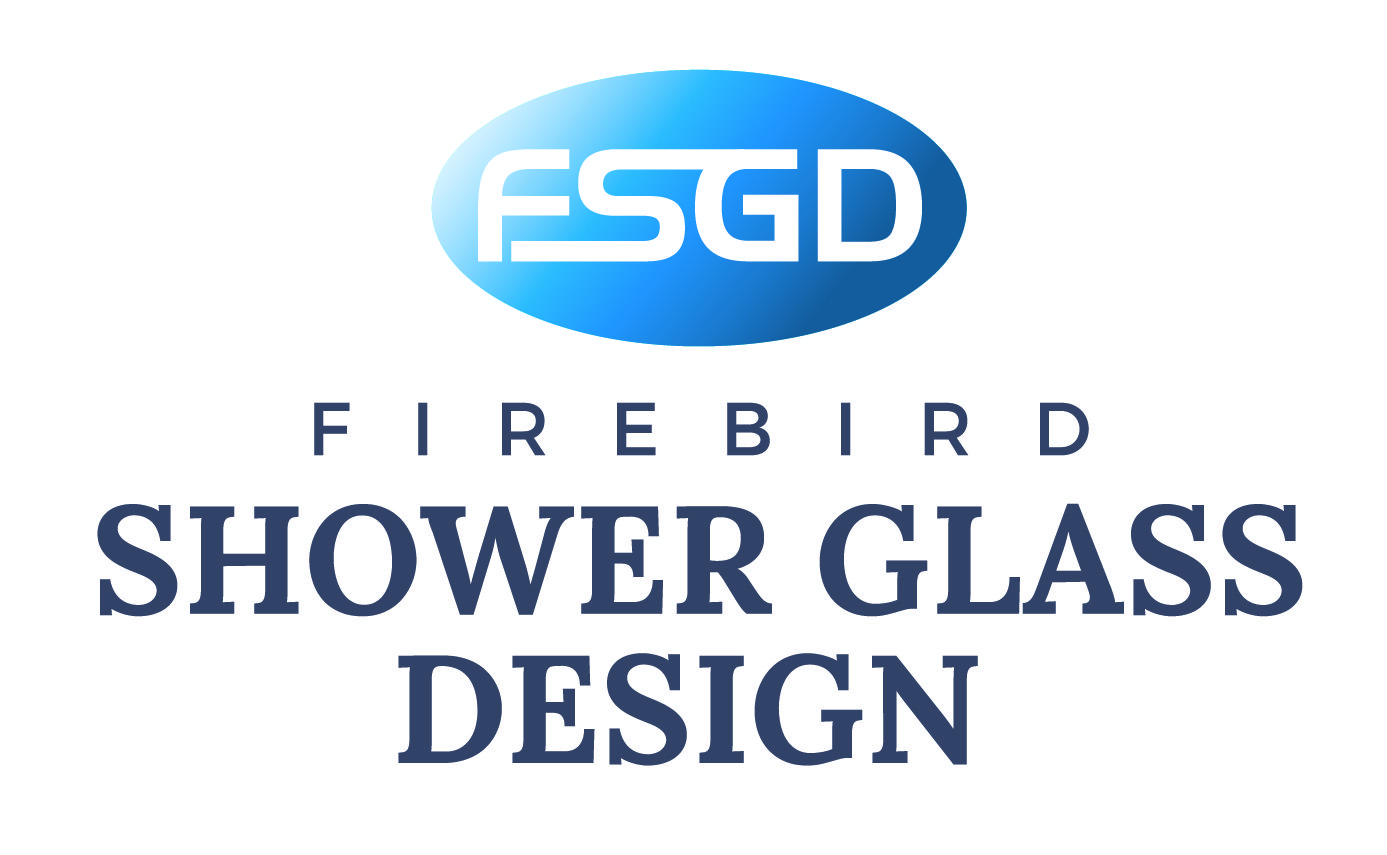Let’s look at the basics before diving into the pros and cons.
A Quick Breakdown (No Jargon)
- Framed showers have metal frames on all sides of the glass panels.
- Frameless showers use thicker glass and minimal metal — just small brackets or hinges.
Why It Matters for Your Bathroom Setup
The type of shower you choose affects everything from water control to style to how cramped your bathroom feels. It’s not just about appearance — it’s about fit, function, and comfort.
Frameless Shower Enclosures – Sleek Look, Higher Price
Frameless glass showers are a favorite for modern bathrooms. They look clean, feel open, and let your tile work shine. At Firebird, we typically recommend frameless enclosures for most homes — they’re built to last longer and come with fewer long-term headaches.
What Frameless Actually Means
Frameless doesn’t mean “no hardware at all.” It just means the glass panels aren’t supported by full metal frames. Instead, the enclosure relies on strong, thick glass (usually ⅜” or ½”) that’s held in place with discreet clips or hinges.
Why People Love Them
- Clean, minimal design
- Opens up the space visually
- Customizable layouts
- Fewer places for soap scum to hide
- Longer-lasting with fewer parts to fail
Framed Shower Enclosures – Lower Cost, Higher Maintenance
Framed showers are what most people are familiar with. They’re functional and budget-friendly — but they come with more ongoing issues. Over time, the metal framing can fail, corrode, or become misaligned, especially with mass-market kits.
What to Expect from a Framed Setup
In a framed system, thinner glass panels are surrounded by metal on all sides. You’ll also see a frame around the door itself, often with a track at the bottom.
What They Do Well (Pros)
- Good water containment
- Budget-friendly
- Easier to install in some bathrooms
- Familiar and widely available
Where They Often Fall Short (Cons)
- More visual bulk
- Tracks and seals collect buildup
- Prone to design flaws and leakage
- Require more ongoing maintenance
- Off-the-shelf kits are hard to fit correctly
Many homeowners who purchase DIY kits from big-box stores like Home Depot or Lowe’s end up calling Firebird for help — not because the parts are missing, but because the kits aren’t tailored to their specific layout. These setups often leak, don’t fit well, or simply fail due to lower-quality components.
Key Differences That Actually Matter
Design and Style: What Will It Look Like in Your Bathroom?
- Frameless: Clear lines, minimal hardware — perfect for showcasing tile work
- Framed: More visible metal, a more traditional look
Price Check: What You’ll Pay (and What You Get)
- Frameless: Typically $1,200–$3,000 installed (usually only $200–$400 more than framed)
- Framed: Usually $600–$1,500 installed
Cleaning and Maintenance: Which Is Easier Day-to-Day?
- Frameless: Smooth glass with fewer crevices — easy to wipe down
- Framed: Tracks and seals attract soap, mildew, and mineral buildup
Water Leakage: Which Style Holds Up Better?
Contrary to what many people assume, framed enclosures tend to leak more over time. While they have bottom tracks and seals, the metal components are more vulnerable to failure — especially when lower-quality materials or DIY kits are involved.
Frameless showers, when installed correctly, hold up extremely well. They rely on tight seals and proper sloping to manage water, and with expert installation, leaks are rarely an issue.
- Frameless: Leak-free when installed by professionals
- Framed: More prone to leaking over time due to metal fatigue and design flaws
Durability and Repairs Over Time
- Frameless: Thicker glass, fewer parts, built to last
- Framed: More replaceable parts but higher maintenance needs
Choosing What’s Right for You
Still torn? Here’s a quick way to weigh your needs.
If You’re On a Budget…
Framed might seem appealing — but be prepared for more maintenance and potential service calls later on.
If You Want a Modern, Minimal Look…
Frameless delivers the aesthetic, with a longer service life to match.
If You Have a Small Bathroom…
Frameless visually opens up tight spaces — a great way to maximize style and space.
If You’re Planning to Sell Soon…
Frameless showers add modern appeal and show beautifully in listing photos. Still, a clean, professionally installed framed setup can work if you’re on a tight timeline.
Frameless vs. Framed Showers: Side-by-Side Comparison Table

FAQs
Do frameless shower doors really cost more?
Yes — but not by much. The difference is often just a few hundred dollars, and the improved lifespan and lower maintenance needs often make it a smarter investment.
Will water leak out of a frameless shower?
It can — if not installed properly or if the design isn’t right for your space. With quality seals and thoughtful design, frameless enclosures are just as watertight, if not more, than framed ones.
Are framed doors harder to clean?
They can be. Metal frames and tracks often trap water, soap, and mildew. Frameless doors are usually smoother and easier to wipe down.
Can either option add value to my home?
Yes, especially if you’re replacing an outdated or damaged shower. Frameless may stand out more to buyers, but any clean, well-installed glass shower adds appeal.
Final Takeaway: Which Shower Door Style Is Best for You?
There’s no one-size-fits-all answer. The best shower for your home is the one that fits your space, your habits, and your budget.
- Want a clean, open look and don’t mind spending more? Frameless is probably for you.
- Want something durable, affordable, and easy to install? A framed enclosure might be perfect.
Still unsure? Talk to someone who installs both every day. At Firebird Shower Glass Design, we’ve helped hundreds of homeowners across North Texas find the right fit — no pressure, just real advice.
